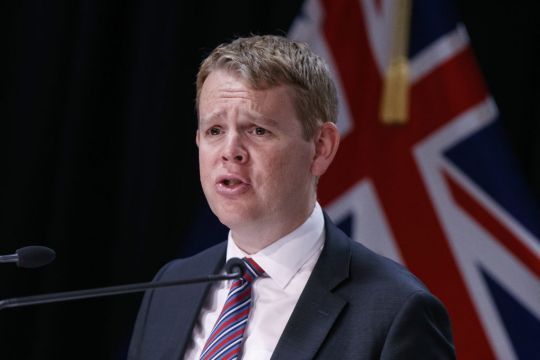Education Minister Chris Hipkins is set to become New Zealand’s next prime minister after he was the only candidate to enter the race to replace Jacinda Ardern.
Mr Hipkins, 44, must still get an endorsement on Sunday from his Labour Party colleagues in Parliament but that is just a formality now.
Ms Ardern shocked the nation of five million people on Thursday when she announced she was resigning after five-and-a-half years in the top role.
The lack of other candidates indicated party lawmakers had rallied behind Mr Hipkins to avoid a drawn-out contest and any sign of disunity following Ms Ardern’s departure.
Mr Hipkins will have less than eight months in the role before contesting a general election. Opinion polls have indicated that Labour is trailing the main opponent, the conservative National Party.
Mr Hipkins rose to public prominence during the coronavirus pandemic, when he took on a kind of crisis management role.
But he and other liberals have long been in the shadow of Ms Ardern, who became a global icon of the left and exemplified a new style of leadership.
Just 37 when she became leader, Ms Ardern was praised around the world for her handling of the nation’s worst-ever mass shooting and the early stages of the pandemic.
But she faced mounting political pressures at home and a level of vitriol from some that previous New Zealand leaders had not faced.
Fighting back tears, Ms Ardern told reporters on Thursday that she was leaving the role no later than February 7.
“I know what this job takes, and I know that I no longer have enough in the tank to do it justice. It is that simple,” she said.
“It’s a big day for a boy from the Hutt,” Mr Hipkins said, referring to the Hutt Valley near Wellington where he grew up. “I’m really humbled and really proud to be taking this on. It is the biggest responsibility and the biggest privilege of my life.”
Mr Hipkins said: “Jacinda Ardern has been an incredible prime minister for New Zealand. She was the leader that we needed at the time that we needed it.”
A politician for 15 years, Mr Hipkins is considered more centrist than Ms Ardern and colleagues hope that he will appeal to a broad range of voters.
Among his biggest challenges during an election year will be convincing voters that his party is managing the economy well.
New Zealand’s unemployment rate is relatively low at 3.3%, but inflation is high at 7.2%. New Zealand’s Reserve Bank has hiked the benchmark interest rate to 4.25% as it tries to get inflation under control, and some economists are predicting the country will go into recession this year.







